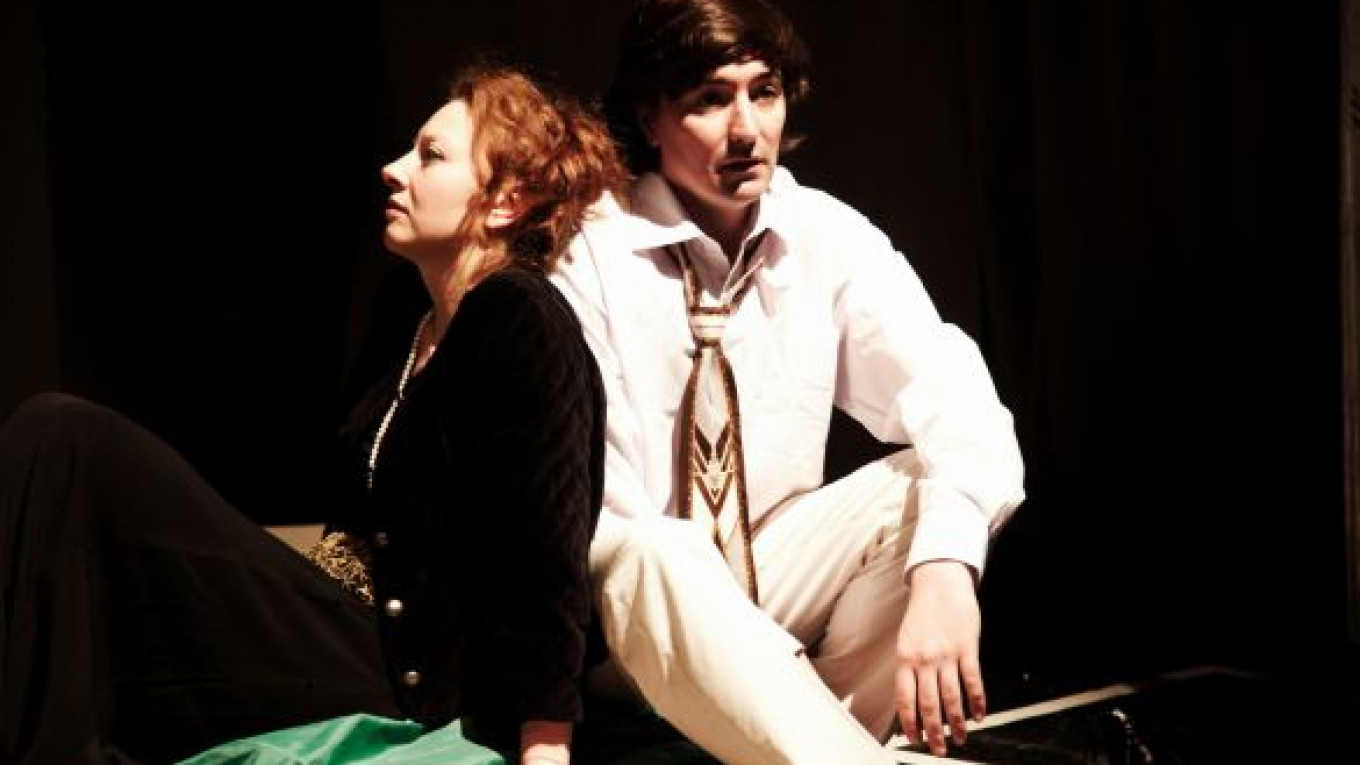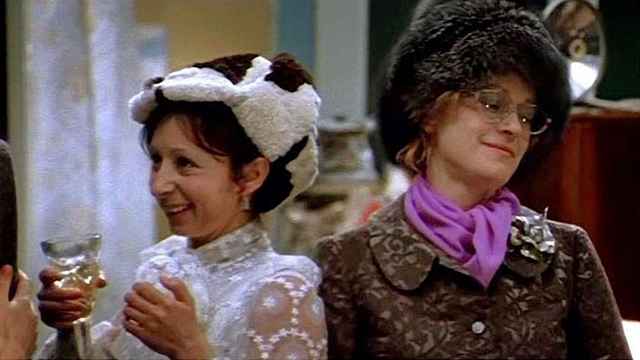The more things change, the more they stay the same.
This loaded and tantalizing cliche comes to mind thanks to Sasha Denisova's new play "Day of Dust" at the Playwright and Director Center.
Denisova, who additionally debuts as director, does not hide the fact that she went back to two 100-year-old plays for inspiration: Anton Chekhov's "The Seagull" and "Three Sisters." Less obvious is the fact that, in an effort to seek definitions of the present, she traverses ground that Olga Mukhina tilled in her plays "Tanya-Tanya" in the mid-1990s and "Flying" a decade later. We could surely draw parallels to the plays of Alexei Arbuzov in the 1950s and '60s if we had the time and inclination.
There isn't an ounce of imitation in Denisova's work; "Day of Dust" remakes nothing. At its best it is bold, original and funny. But there is no denying that nothing is new in the topic of ambitious, talented people in Russia finding themselves trapped in a world that destroys their dreams. In order to wriggle out of their predicaments, Denisova's characters talk and philosophize. They get mixed up in messy love affairs. They seek, to use Maeterlinck's image, the elusive bluebird of happiness. They battle despair. They crash and crash and crash again.
Denisova, who appeared on the scene just two years ago, is best known for her play "Light My Fire," which won a Golden Mask award this spring in the experiment category. She also has a play running at the Mayakovsky Theater called "Mayakovsky Goes for Sugar." Like "Day of Dust," these works are created by the writer with the company of actors. They are not only encouraged to bring their own ideas and experiences to the writing and rehearsal process, they are expected to do that.
The result is a unique text that embraces multiple voices. It ties each actor closer to the words and actions that are spoken and performed, while adding an element of improvisation to the proceedings. Surely, in some cases, that is true in "Day of Dust." And, undoubtedly, this is a double-edged sword. This show occasionally lurches out of control then spins its wheels furiously before gaining traction again.
Some of those long monologues surely could be shorter, and things get downright operatic as false endings pile up at the end. But this show's fresh, contemporary air easily wins out over any shortcomings.
The characters are hip and mostly likeable. Papyrus (Arina Marakulina) is a columnist and novelist whose goal is nothing less than to make history with her art. Kolpakov (Ilyas Tamayev), her longtime lover, is a writer and teacher whose current girlfriend, Katya (played almost straight as an arrow by Mikhail Yefimov), is probably less naive than she appears. Hanging around them are Guseva (Tatyana Parshina), a girl who insists she just wants to love and be happy; her beau, Kolya (Alexei Maslodudov); and Vlad (Alexei Yudnikov), the arrogant and massively popular host of a TV show called "What and What For?"
Papyrus has the idea of inviting her aging, 30-something friends to a theme picnic. They'll dress as flapper girls and boys and head for a place in the woods that they frequented in their youth. Rather like in Woody Allen's movie "A Midsummer Night's Sex Comedy," everyone loses their way, figuratively and literally. As they do it, they pontificate on the successes, failures and compromises life has visited upon them.
Designer Larisa Lomakina built a forest of aluminum trees standing on a platform that spins to suggest ever new locations in the ever-changing wood.
Papyrus represents the uncompromising, driven artist, the personality that strives for authenticity and motivation at every step. She is horrified by the younger generation, which has grown up with everything at hand, from iPods to foreign passports. Her rival in this — while remaining, perhaps, her most devoted friend — is the jaded TV star Vlad. He can't understand why Papyrus won't have a face lift to hide her age and tries to ensnare Guseva in a sham marriage that would play well in glossy magazines' society pages.
Denisova and her cast explore the passing of youth and the loss of innocence primarily through humor, although tragedy is built into the equation. Characters enjoy ridiculing each other, and the actors have no qualms about mocking the characters they play. The result is a loose, ironic performance that suggests, in the end, that maturing gracefully is probably not possible.
"Day of Dust" (Pylny Den) plays June 24 and 25 at 8 p.m. at the Playwright and Director Center, located at 5 Begovaya Ulitsa. Metro Begovaya. Tel. 945-3245. . Running time: 2 hours, 35 minutes.
A Message from The Moscow Times:
Dear readers,
We are facing unprecedented challenges. Russia's Prosecutor General's Office has designated The Moscow Times as an "undesirable" organization, criminalizing our work and putting our staff at risk of prosecution. This follows our earlier unjust labeling as a "foreign agent."
These actions are direct attempts to silence independent journalism in Russia. The authorities claim our work "discredits the decisions of the Russian leadership." We see things differently: we strive to provide accurate, unbiased reporting on Russia.
We, the journalists of The Moscow Times, refuse to be silenced. But to continue our work, we need your help.
Your support, no matter how small, makes a world of difference. If you can, please support us monthly starting from just $2. It's quick to set up, and every contribution makes a significant impact.
By supporting The Moscow Times, you're defending open, independent journalism in the face of repression. Thank you for standing with us.
Remind me later.







